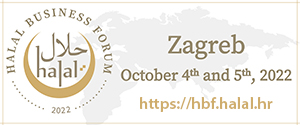By R.Ravichandran
KUALA LUMPUR, July 7 (Bernama)– Malaysia’s Ambassador to Senegal,
Datuk Jamaiyah Mohamed Yusof, has embarked on a series of programmes to
increase bilateral trade and investment with the West African country
and four others.
The four countries — also West African — are Gambia, Mali, Burkina Faso and Cape Verde.
Speaking to Bernama in a recent interview in Putrajaya, Jamaiyah
who is also accredited to Gambia, Mali, Burkina Faso and Cape Verde
said that despite Kuala Lumpur and Dakar enjoying cordial relations,
the volume of bilateral trade was small.
According to Jamaiyah, she had made contact and was networking
with the Senegal Traders Association, and this had resulted in the
participation of 22 Senegalese companies at the 6th Malaysian
International Halal Showcase (MIHAS) 2009 in May this year.
She described this as a huge success, as no Senegalese companies had participated in the previous MIHAS.
“Upon returning to Senegal, we had a post-mortem and realised that
the companies there need trading partners in Malaysia.I am happy that
from nothing, we can now expect something,” she said.
Total trade between Malaysia and Senegal in 2008 was about US$15
million. Since January this year, it has increased about 24 percent.
Jamaiyah said that she had also developed close rapport with the
Senegal business community while identifying several projects where the
Malaysian business sector could explore joint-ventures.
Among the major projects is the plan to build 70,000 units of
homes for Senegal’s emerging middle-class, as there is an acute
shortage of accommmodation for them in the West African country of some
13.7 million.
Jamaiyah said on the Senegalese side, they lacked technology and
the financial capacity, and she was studying the whole concept of the
project before initiating further measures to secure suitable joint
venture partners from Malaysia.
She said that based on her observation, there exists ample
opportunity in the agro-based industry in Senegal, for potential joint
ventures with Malaysian businessmen.
“This is for the processing of mango juice, dried mango and pickle
as well as the export of fresh mangoes to Europe and the United
States.Despite the huge potential, they lack the technology to
undertake the task.
“Another area with potential is in the trading of car batteries,
tyres, detergents, energy saving lamps, farming equipment,furniture and
household appliances.
“Malaysian health care products can also be popular in Senegal and
one of the Senegalese participants to MIHAS 2009 has already started
importing such products for distribution in Senegal.
“There are also good prospects for medical and pharmaceutical products,” she added.
On palm oil, Jamaiyah explained that Senegal buys from Malaysia
but the volume is small due to the high import tax of about 74 percent,
to protect the country’s groundnut oil industry.
She decribed this situation as not being helpful to Malaysian exporters.
However, she has good news for Malaysia.
“I met Senegal’s Minister of Trade and told him that local traders
there want to buy more plam oil which Malaysia was keen to sell. I was
informed by the Minister that the protection tax has been lifted and
and full details would be made known soon,” Jamaiyah said.
She pointed out that Islamic banking was another area of cooperation, as Senegal wanted Malaysian experts to train its people.
She highlighted that Senegal was also planning to send 10 personnel to Malaysia to study the Islamic banking system.
Senegal’s ambition is to be the leader in Islamic finance within
the West African Economic and Monetary Union (UEMOA). The nine French
speaking West African countries under the UEMOA share one central bank
headquartered in Dakar, Senegal.
On problems in doing business in the French speaking country,
Jamaiyah stressed that the bureaucracy could be overcome and language
too was not a big problem.
The ambassador also spoke on the business potential in Gambia, Mali and Burkina Faso.
Gambia, a nation of 1.7 million people is a Commonwealth member and Malaysia is very well known there.
Jamaiyah explained that bilateral trade relations between Gambia
and Malaysia was not that very active though, with only about US$28
million recorded.
“But the opportunity does exist to increase this, especially in
respect of investments in the areas of education and greater trading,”
she said.
Similarly, she stated, business opportunities also existed in French speaking Burkina Faso, a small country of 14 million.
She pointed out that a delegation of seven companies from Burkino
Faso participated in MIHAS 2009 and had visited Marditech Corporation.
“They expressed an interest in buying food processing equipment,
provided they were given free training on usage.I have asked Marditech
to provide the free technical training,” she said.
“As for Mali with a population of 13 million and Burkina Faso, the
trade level between Malaysia and these countries is similar to
Senegal.Both are interested in sourcing products from Malaysia such as
foodstuff, furniture and electric and electronic products.
“But before Malaysian investors invest or undertake trading in all
these countries, they must do their homework and get suitable
partners,” she said.
On Cape Verde, a small island nation of about 500,000,Jamaiyah
said the tourism sector had some potential in the Portuguese speaking
country.
She said that Cape Verde had sent two people to attend the Malaysian Technical Co-operation Programme (MTCP) in 2008.
She is hoping to get more people from that country to participate
in the programme in future, so that they will know more about Malaysia.



